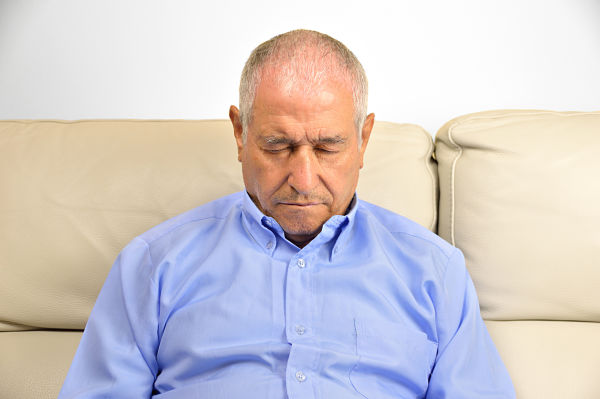The symptoms, diagnosis and treatment of late-onset hypogonadism

As men age their testosterone levels decrease and in middle age this has become known as “andropause” or - colloquially - “the male menopause”. At this time men may experience symptoms that are general and non-specific in nature and will probably dismiss them as ageing. However, in some cases they may be suffering from a medical condition called “late-onset hypogonadism” - this leads to changes in body function which are similar to younger men suffering from hypogonadism.
These are:
- Feeling tired and weak
- Aching muscles
- Loss of body hair
- Loss of bone mass (which may increase risk of fractures)
- Loss of libido
- Loss of morning erections
- Erectile dysfunction
- Difficulty concentrating
- Loss of motivation
- Irritability
- Low moods
At younger ages the cause of typical hypogonadism is often genetic. However, late-onset hypogonadism is attributed to abnormally low testosterone levels in older men with no obvious cause and is found to occur in just over 2% of men. It is important to make sure that any unusually diminished testosterone levels have not actually been caused by disease of the testes (primary) or the hypothalamus/ pituitary gland (secondary).
Diagnosis
You will need a series of tests to get to the root cause of symptoms which may be attributable to low testosterone levels.
- Firstly, total testosterone is measured fasting on two separate occasions between 8am and 10am (since there is a significant difference in testosterone levels between night and day)
- If testosterone levels are low, two further early morning tests are taken to identify whether the cause is primary or secondary. This time tests also look at LH (luteinising hormone) and FSH (follicle stimulating hormone).
Low testosterone levels caused by a disease of the testes will also reveal low testosterone levels but elevated levels of LH and FSH
Low testosterone levels caused by the hypothalamus or pituitary gland will reveal low testosterone and inappropriately normal levels of LH and FSH.
Further investigation including distinguish which part of the endocrine system is causing this requires:
- Measurements (at the beginning of the day) in terms of cortisol, free thyroxine (FT4), TSH and prolactin
- MRI scan of the pituitary
- Other blood tests including glucose and iron status
- Bone densometry
Late-onset hypogonadism (LOH)
In 2015 the European Male Aging Study looked at 3369 men aged between 40-79 men and concluded that the condition of late-onset hypogonadism could be ascribed to ageing men presenting with low T (less than 11nmol/L) combined with three symptoms
- decreased libido
- decreased spontaneous erections and
- erectile dysfunction.
These men typically exhibited several other symptoms such as lowered haemoglobin; lowered heel bone density and lowered muscle mass as well as poor general health. Those with severe LOH (less than 8nmol/L) also showed a tendency to insulin resistance and an increased waist circumference.
Treatment
Once you have received your diagnosis testosterone replacement therapy may be suggested as a trial. So how effective is this?
In 2015 seven year-long placebo controlled trials took place to test the efficacy testosterone replacement. 51,000 men aged over 65 were screened to enrol the 790 men who met the inclusion criteria. Treated via testosterone gel therapy, the trials found a modest beneficial effect on:
- low libido
- mood
- depression
- haemoglobin
- bone mineral density
However, testosterone did not improve vitality or cognition and was associated with an increase in plaque volume in the coronary artery. There was no increase in heart attacks or prostate cancer.
Subsequent meta analyses have also shown no increase in prostate cancer. However, long term treatment appears to result in testicular atrophy (when the testes diminish in size and may be accompanied by lack of function) and, particularly in those treated by injections, 25% were shown to develop a condition called “erythrocytosis” which is an increase in red blood cells making the blood thicker and less able to travel through blood vessels and organs.
There was also an increase in sleep apnoea.
Forms of testosterone replacement
As the liver rapidly metabolises testosterone, it‘s impossible to maintain normal levels with oral testosterone. However, gels, patches and injections can all give normal and stable results. The patient choice then comes down to convenience, preference and cost.
I hope this has been helpful
Although every effort is made to ensure that all health advice on this website is accurate and up to date it is for information purposes and should not replace a visit to your doctor or health care professional.
As the advice is general in nature rather than specific to individuals Dr Vanderpump cannot accept any liability for actions arising from its use nor can he be held responsible for the content of any pages referenced by an external link










